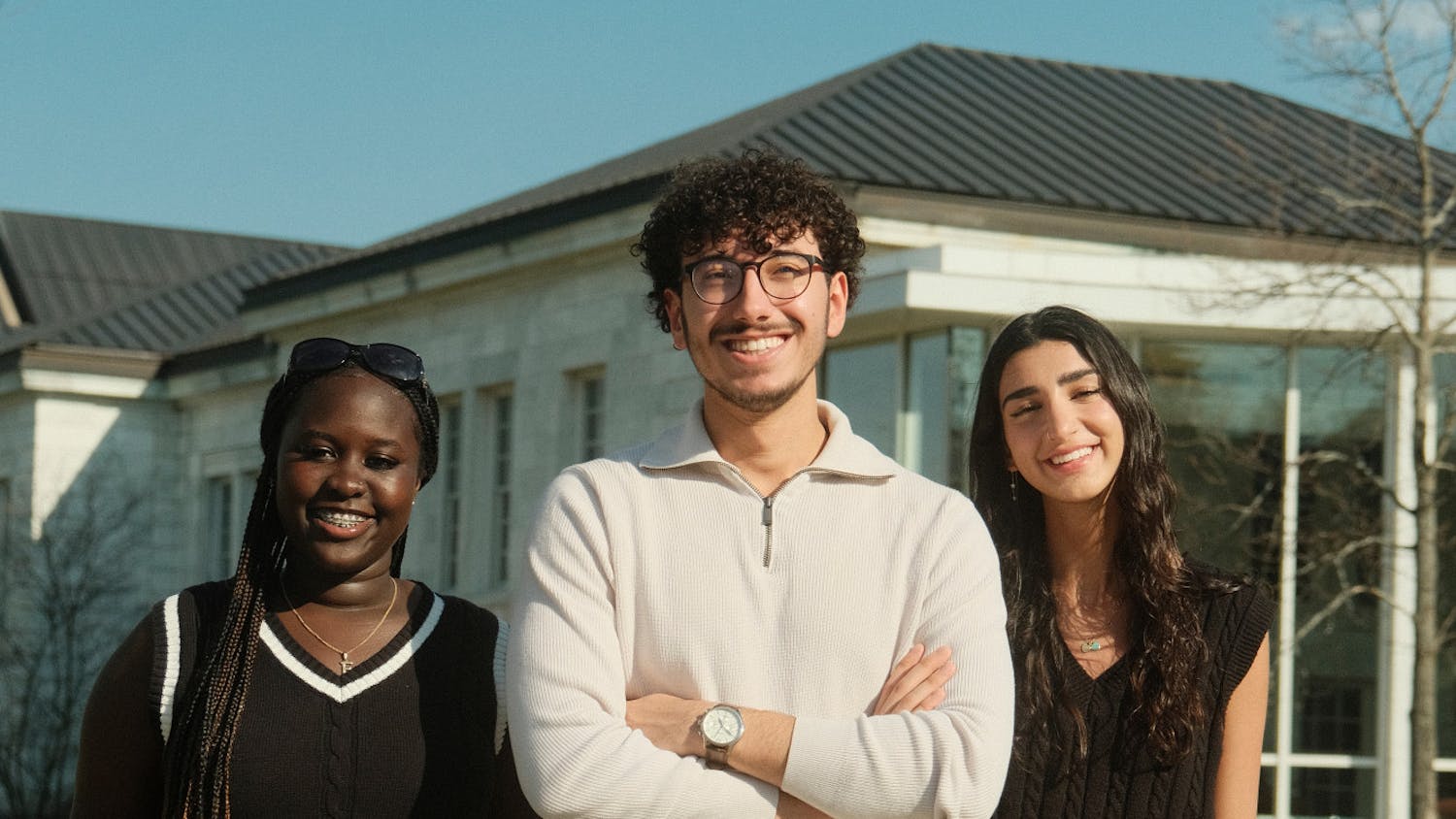Since I became a pescetarian (a vegetarian that eats fish) over six years ago, I have always tried to be pretty low-key about it. I’m not the type that sits atop a high horse and condemns the world’s meat-eaters, or the kind that makes it their entire personality –– even I find those people a bit abrasive. You might think that because I’m writing this piece, I’m not as low-key as I choose to believe, and there may even be some truth in that. Nonetheless, my intention is not to shame meat-eaters, but rather to explain my philosophy and hopefully persuade a few people to stop eating meat along the way.
When people ask me why I’m pescetarian, I usually say something like, “I love animals, but it’s just a personal thing, really. I think everyone should eat meat if they want to.” I use those lines to end the conversation as quickly as possible so people don’t think I’m one of those meat-eater-shaming types. I do mean it, though. Just with a few qualifications.
My personal philosophy is that you should not eat meat if you could not muster the courage to watch the meat-producing animal be killed. Thinking about it in these terms is what ultimately persuaded me to become a pescetarian when I was sixteen. I have always loved animals (and sometimes even prefer their company to humans). Therefore, I eventually realized that I could not justify eating them when I shuddered at the thought of watching them die. I was succumbing to blissful ignorance, choosing to never fully think about what I was eating or how it got onto my plate. The cognitive dissonance became too much to bear, so I made the decision to stop eating meat (unless it is fish) altogether.
If you are not terribly bothered by the realities of the meat industry –– which include animal suffering and environmental devastation –– then by all means, keep doing what you’re doing. I know that not everyone thinks about these things in the same way that I do, and while I don’t understand it, I respect your opinion. We’ll agree to disagree.
But now, I turn to the people that still eat meat but take issue with the meat industry or are curious about becoming vegetarian or pescetarian. If you’ve thought about it before but haven’t yet made the commitment, I imagine you’ve come up with several reasons why you think it would be too difficult. In an effort to push you in the direction of cutting out meat, I’ll address some of the main hesitations that I grappled with to make you realize that it’s actually quite easy, especially at Middlebury.
You might think that you like meat too much to ever give it up. This is the reasoning I used to justify eating meat before I became pescetarian. I ate it with basically every meal. I still love the smell of burgers on the grill and bacon in the morning. So believe me when I say that cutting out meat was hard at first. But it helped to remind myself why I chose to stop eating meat in the first place. For me, it was my love of animals. For you, it could be anything, from wanting to do your part in protecting the environment to improving your health. Committing to this goal –– whatever your personal incentive may be –– will be far more rewarding than the momentary gratification you get from eating a burger. And (don’t laugh), the fake meat options are surprisingly good these days. My dad (a meat-eater) and I went to Burger King to try the Impossible Whopper, and he swore that he couldn’t tell the difference.
You might also worry that you won’t get enough to eat. Trust me, at least while you’re at Middlebury, you’ll be just fine. The dining halls always have some substantial vegetarian option that usually includes a source of protein at every meal. You will certainly be able to find something that you like, even if it means making your own panini at Proc. Likewise, almost every restaurant in the U.S. has, at the very least, one vegetarian option on the menu, even if sometimes –– but rarely –– it’s grilled cheese in the kids section. You’ll be able to make it work wherever you go.
I admit, however, that it can be difficult being a pescetarian when someone else is hosting you. For me, this is the most difficult part. It’s hard to be the perfect guest when your elective diet dictates whether or not you can eat the food your hosts so graciously provide for you. As a generally anxious person who is constantly worried about making a good impression and not burdening my hosts, this is tough. But I’ve come to realize that most hosts aren’t offended. In fact, they usually admire my decision. If you face a situation in which your hosts seem bothered by your diet, consider it much more a reflection of them than it is you. These days, many people have dietary restrictions and do not deserve to be perceived negatively as a result.
Alas, it appears I have become one of those preachy, pick-me pescetarians, but I accept my fate. I love animals. As ridiculous as it sounds, I actually believe that they are friends, not food (yes, I eat fish, but I have –– albeit uncomfortably –– seen them die, and they do not experience pain like farm animals). If, for any reason at all, you have considered or are considering cutting meat out of your diet, I hope this op-ed can help push you in that direction.
Bella Burke '23.5 (she/her) is an Opinions Editor.
Bella studies Political Science with minors in Spanish and History. She has also served as Yoga Club President for the past four years.



